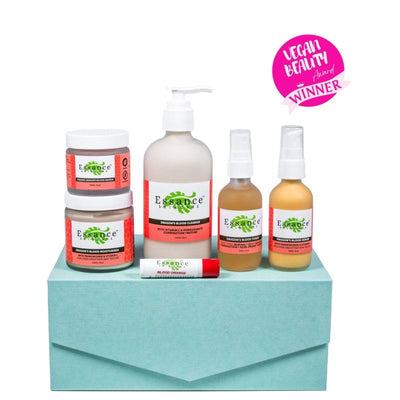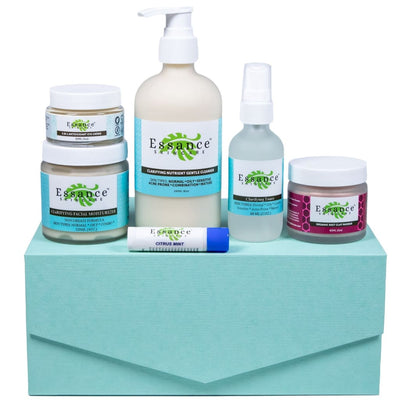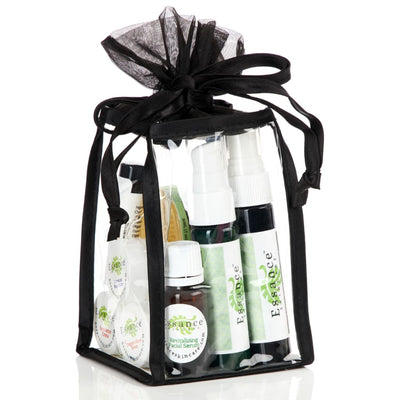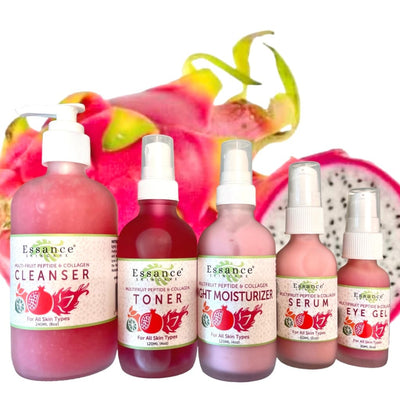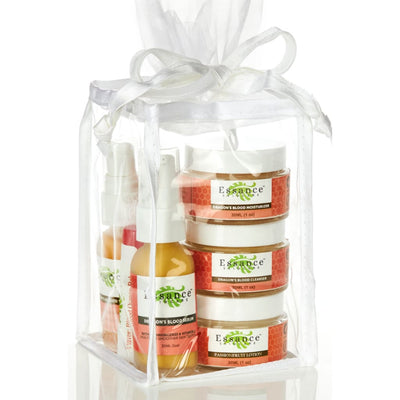If you're navigating the bumpy road of teenage acne, you're not alone. Nearly every teen deals with it at some point during puberty. But how long does teenage acne last, and what can you do to clear it up? Let's break it down, from the causes to the treatments that can help you get smoother skin and boost your confidence.
Teenage Acne Duration: What's Normal?
First things first, the teenage acne duration can vary from person to person. For most teens, acne starts appearing during puberty, often around ages 11 to 13, and can stick around until the mid-to-late teens. For some, it may last a bit longer, especially if hormonal acne in teens is involved. But don't worry—this is completely normal, and acne doesn't last forever.
When Does Teenage Acne Go Away?
So, when does teenage acne go away? Typically, acne starts to fade by the late teenage years, but sometimes it can persist into early adulthood. If your acne lasts longer than expected, it's important to keep up with a consistent skincare routine and visit a dermatologist if needed. Hormones can still be a factor as you approach your 20s, which means you might still deal with acne, but it may look different than during your teen years.
Also Read: Skincare Routine for Teens With Acne-Prone Skin
What Causes Teenage Acne?
Understanding the causes of teenage acne can help you manage it better. Acne is a result of a combination of factors, but the main culprit is hormones. Puberty triggers an increase in oil production, which can clog pores and build the perfect environment for acne-causing bacteria to thrive. Stress, diet, and even using certain skincare products without considering your skin type can make acne worse, too. But don't stress—it's all part of the process!
How to Treat Teenage Acne?
When it comes to how to treat teenage acne, the key is consistency. Start with gentle cleansers and avoid over-drying products. Your skin needs moisture to stay balanced. A gentle clarifying toner and a clarifying moisturizer, like those from Essance Skincare, can be your best friends. The clarifying toner helps to balance oil production and refresh your skin, while the clarifying moisturizer keeps your skin hydrated without clogging pores.
You'll also want to look for acne treatments for teens that target inflammation and breakouts without being too harsh. Look for components like salicylic acid, tea tree oil, and aloe vera. These ingredients help unclog pores and calm redness, without irritating your skin.
Also Read: What Does Face Toner Do, and When Do I Use It?
Puberty and Acne: The Hormonal Connection
If you're dealing with hormonal acne in teens, you know how frustrating it can be. During puberty, your body is flooded with hormones like testosterone, which increases oil production in your skin. This is a big reason for those pesky breakouts, especially around your T-zone (forehead, nose, and chin). Hormonal changes often cause acne flare-ups during the teenage years, and unfortunately, you can't always control them. But what you can control is how you treat your skin.
Teenage Acne Timeline: What to Expect
The teenage acne timeline typically begins with the appearance of blackheads, whiteheads, or small pimples. Over time, you may notice more inflamed, red spots or even cystic acne. The good news? As your hormones stabilize, your acne should improve. The timeline for this varies, but most teens see improvements as they hit their late teens. Just remember, it's important to stay patient and consistent with your skincare routine!
How Long Does Acne Last During Puberty?
During puberty, acne can last anywhere from a few months to a few years, depending on the individual. On average, most teens experience acne for around 2 to 3 years. If you're in your early teens, it's completely normal to see acne pop up and down as your body goes through these changes. With a good skincare routine, acne should start to lessen as you transition into your late teens.
Teen Skin Care Tips: Taking Care of Your Skin
As part of your teen skincare routine, keeping your skin clean and moisturized is essential. Use gentle, non-comedogenic products (that won't clog your pores) to keep your skin looking its best. Avoid picking at your acne—this can lead to scarring. And remember, consistency is key! Cleanse twice a day, apply a good toner, and keep your skin hydrated with a light moisturizer.
Essance Skincare offers some amazing products that can help! The Revitalizing Skincare Line and Dragon's Blood collection feature ingredients like aloe and hyaluronic acid, which calm and nourish your skin, helping it bounce back from breakouts. Plus, their Multifruit Peptide Collagen collection is perfect for keeping your skin smooth and clear.
Wrapping Up: Patience and Consistency Are Key
So, how long does acne last during puberty? It varies, but with the right care, it will eventually fade. Stick with a skincare routine that's gentle yet effective, and don't forget to give your skin time to adjust. You've got this! If you need more guidance, Essance Skincare is here to support you with products that are safe, natural, and effective. Keep taking care of your skin—it's worth the effort!
FAQs
1. How long does teenage acne typically last?
Teenage acne typically lasts 2 to 3 years, starting in the early teen years and often improving by the late teens or early 20s.
2. What causes teenage acne?
Teenage acne is mainly caused by hormonal changes during puberty, which increase oil production in the skin. Other factors include clogged pores, bacteria, and sometimes stress or diet.
3. Can teenage acne go away on its own?
Yes, teenage acne often improves on its own as hormones stabilize, but it can take time. A good skincare routine can help manage breakouts while your skin naturally clears up.
4. When should a teenager see a dermatologist for acne?
A teenager should see a dermatologist if acne is severe, causes scarring, or doesn't improve with over-the-counter treatments. A dermatologist can recommend stronger treatments or medications.
5. Does diet affect teenage acne?
While diet doesn't directly cause acne, certain foods like dairy or high-glycemic foods may trigger or worsen breakouts in some people. Eating a balanced diet can support healthier skin.
6. Is it okay to pop pimples?
It's best not to pop pimples. Popping them can push bacteria deeper into the skin, leading to more inflammation, infection, and scarring. It's better to let pimples heal on their own or with proper treatment.


